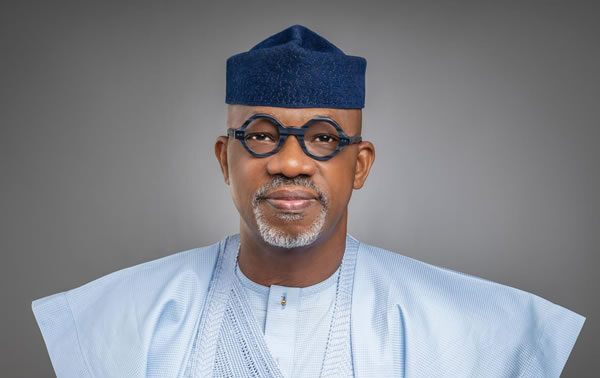The Ogun State Government has entered into a partnership with the European Union (EU) to equip 40 rural health centres with solar energy systems, in a move aimed at strengthening healthcare delivery and reducing reliance on erratic power supply across underserved communities.
Governor Dapo Abiodun, represented by the Commissioner for Finance, Mr. Dapo Okubadejo, disclosed this on Thursday in Abeokuta at the launch of the Nigeria Solar for Health Project, an EU-funded initiative targeted at improving energy access for medical facilities.
Abiodun noted that unreliable electricity continues to pose serious challenges to healthcare delivery, particularly in rural and semi-urban areas. He stressed that frequent power outages often undermine critical medical procedures, compromise vaccine storage, and hinder the effective use of diagnostic equipment.
“In many rural areas, power disruptions compromise the quality of medical services. Vaccines lose potency without refrigeration, emergency procedures are delayed, and diagnostic tools become ineffective. These challenges are not merely operational they are matters of life and death,” he said.
The Solar for Health initiative, he explained, will provide clean, renewable, and uninterrupted electricity to the selected primary healthcare centres. The first phase is expected to support more than 40 facilities, with measurable improvements projected in maternal care, emergency response, child health, and overall patient outcomes.
According to the governor, the transition will also reduce reliance on diesel generators, lowering operational costs and carbon emissions while creating jobs within the renewable energy sector.
He added that the state would collaborate with local councils, host communities, and development partners to ensure proper maintenance, technical training, and long-term sustainability of the installations. Nearby small businesses may also have access to regulated, affordable power supply through the micro-grid networks built around the centres.
Speaking at the event, Mr. Godfrey Ogbemudia, Programme Manager for Energy and Circular Economy at the EU Delegation to Nigeria and ECOWAS, reaffirmed the Union’s commitment to improving access to reliable healthcare and sustainable energy in Nigeria.
He described the initiative implemented under the EU’s Global Gateway Programme as a transformative intervention spanning 2024 to 2028, intended to strengthen public health systems and stimulate economic activities in rural communities.
Ogun State Commissioner for Health, Dr. Tomi Coker, also emphasized the significance of the project, stating that stable electricity is indispensable to quality medical care.
“Power is fundamental to healthcare. We cannot deliver a baby in darkness, store vaccines safely, operate life-saving equipment, or run digital health systems without uninterrupted electricity,” she said.
Coker revealed that one in six primary healthcare centres in the state is expected to be powered by solar energy before the end of the year through various ongoing initiatives. She noted that state hospitals currently spend over ₦100 million monthly on energy funds that could be redirected to medical supplies, workforce development, and community health programmes.
Nigeria continues to grapple with chronic electricity shortages and grid instability, leaving many rural communities with less than four hours of power supply daily. The Solar for Health Project is expected to serve as a model for improving service delivery in low-resource settings nationwide.



